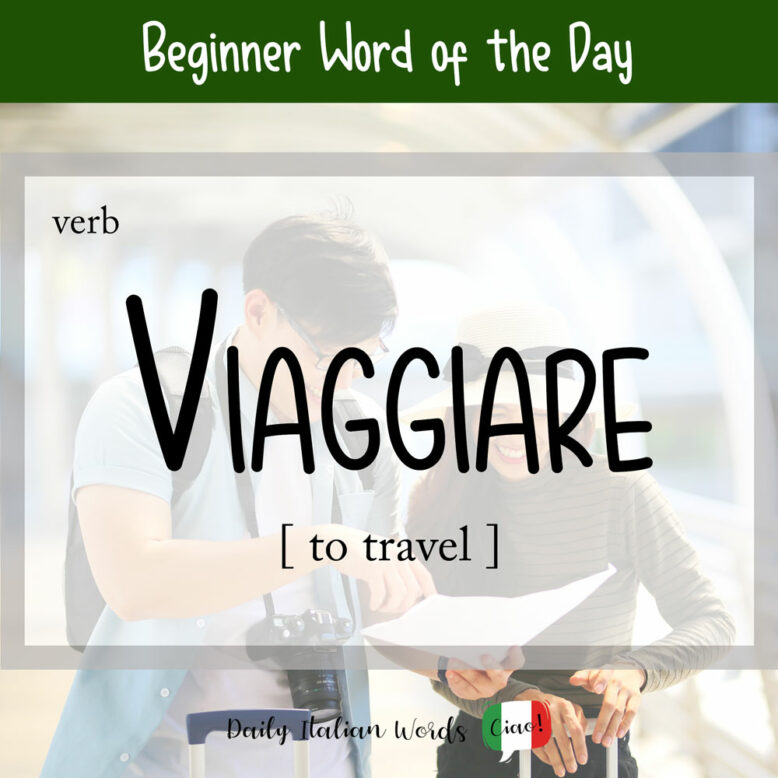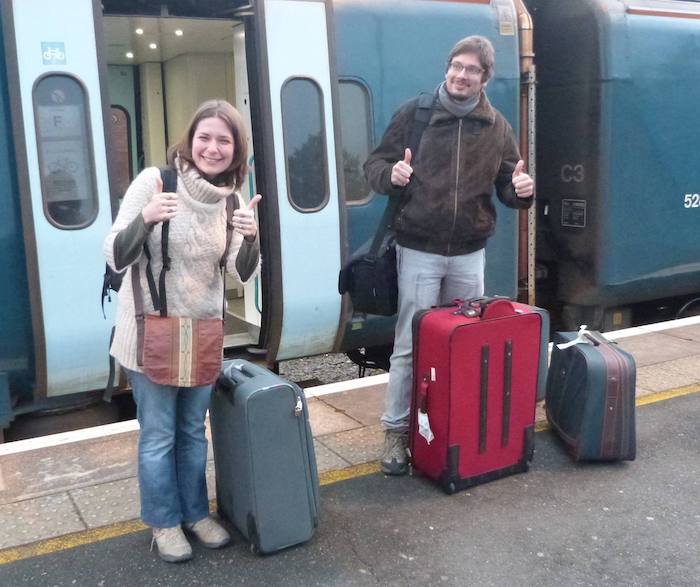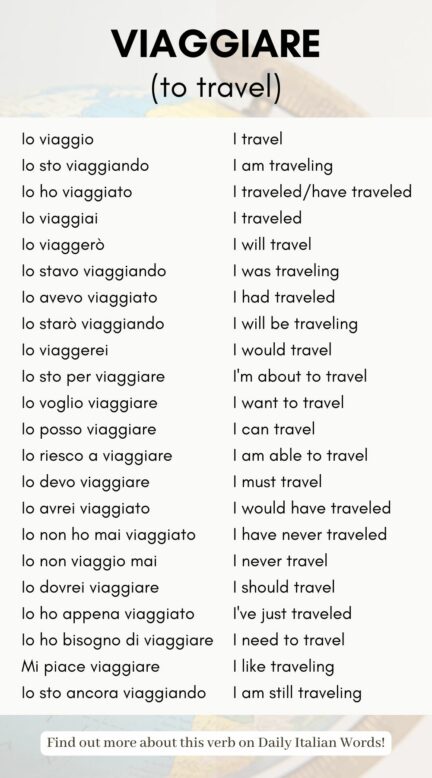Italians love to travel, whether it be abroad or within their own country. Some prefer short staycations in Italy by the sea, whereas others are drawn to foreign countries, with France, Greece and Spain topping the list. In fact, it is said that there are now more Italians living abroad than in Italy!
The word for to travel in Italian bears a strong resemblance to the word voyage in English: viaggiare. It is associated to the noun viaggio which means trip.

Viaggiare can be used as a verb or to describe the act of travelling, as you can see from the example below:
Mi piace viaggiare all’estero.
I like travelling abroad. / I like foreign travel.
You can say viaggiare con when travelling with someone or something, whereas viaggiare insieme a can only be used with other people.
Ho viaggiato con / insieme a mio marito e i bambini.
I travelled with my husband and kids.
Ho viaggiato con il solo bagaglio a mano.
I travelled with just hand luggage.
A traveller, in the sense of someone who makes journeys, is known as a viaggiatore (masculine) or viaggiatrice (feminine) whereas a world traveller can be referred to as either a viaggiatore/trice del mondo or a cittadino/a del mondo (citizen of the world).

There is another common travel expression, which is girare il mondo. This specifically means to travel the world while visiting multiple places.
Voglio girare il mondo prima di sistemarmi.
I want to travel the world before settling down.
If you are travelling through or across an expanse of land or water, such as a desert or ocean, you’ll most likely hear attraversare rather than viaggiare.
Greta ha attraversato l’Atlantico in una barca da regata.
Greta travelled across the Atlantic in a racing boat.
Viaggiare can also be used in a figurative sense to mean daydream or wander.
Quando non sei occupato, la tua mente viaggia.
When you aren’t busy, your mind wanders.
Chissà dove sta viaggiando con la testa…
Who knows what he/she is daydreaming about…
Viaggiare is also used in reference to the speed or timing of a moving objects, such as a train or car.
Il Frecciarossa viaggia con un’ora di ritardo.
The Frecciarossa (red arrow, Italian high speed train) is running one hour late.
Hai visto come viaggia quella macchina rossa?
Did you see how fast the red car is going?
Finally, you can use the verb to describe someone who has to travel a lot for work. He/she is known as commesso/a viaggiatore/trice (travelling salesperson).
Marco viaggia per una ditta di prodotti agricoli.
Marco travels a lot for a company that sells agricultural products.
Trivia:
A public holiday that takes place every August 15th is Ferragosto. It marks the beginning of the summer holiday period in mid-August, which may be a long weekend (ponte di ferragosto). During this break, nearly everyone travels to the seaside, mountains or abroad to escape the heat, turning most Italian cities into città fantasma (ghost towns). This is actually a great time to visit Italy because even though many shops and businesses are closed, you can avoid the heaving crowds.
Useful expressions:
- viaggiare nel tempo = to travel through time
- viaggiare in prima classe = to travel in first class
- viaggiare in seconda classe = to travel in economy class
- compagno di viaggio = fellow traveller
Do you enjoy travelling? If you could travel anywhere in the world, where would you go? 🙂

Heather Broster is a graduate with honours in linguistics from the University of Western Ontario. She is an aspiring polyglot, proficient in English and Italian, as well as Japanese, Welsh, and French to varying degrees of fluency. Originally from Toronto, Heather has resided in various countries, notably Italy for a period of six years. Her primary focus lies in the fields of language acquisition, education, and bilingual instruction.


